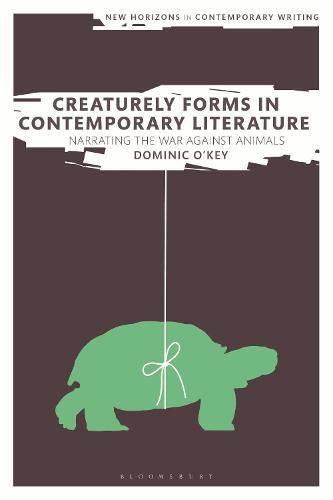Readings Newsletter
Become a Readings Member to make your shopping experience even easier.
Sign in or sign up for free!
You’re not far away from qualifying for FREE standard shipping within Australia
You’ve qualified for FREE standard shipping within Australia
The cart is loading…






We are living through a period of planetary crisis, a time in which the mass production and consumption of some animals is made possible by the mass extinction of many others. What is the role of literature in responding to this war against animals? How might literary criticism read for animals?
In Creaturely Forms in Contemporary Literature, Dominic O'Key develops the bold argument that deep attention to literary form enables us to rethink human-animal relations. Through chapters on W. G. Sebald, J. M. Coetzee and Mahasweta Devi, as well as close readings of works by Arundhati Roy and Richard Powers, O'Key reveals how literary forms can unsettle the fictions of human supremacy and craft alternative, creaturely forms of relation.
An intervention into both the humanism of literary theory and the representational focus of animal studies, this provocative work makes the case for a new formalism in light of our obligation to fellow creatures.
$9.00 standard shipping within Australia
FREE standard shipping within Australia for orders over $100.00
Express & International shipping calculated at checkout
We are living through a period of planetary crisis, a time in which the mass production and consumption of some animals is made possible by the mass extinction of many others. What is the role of literature in responding to this war against animals? How might literary criticism read for animals?
In Creaturely Forms in Contemporary Literature, Dominic O'Key develops the bold argument that deep attention to literary form enables us to rethink human-animal relations. Through chapters on W. G. Sebald, J. M. Coetzee and Mahasweta Devi, as well as close readings of works by Arundhati Roy and Richard Powers, O'Key reveals how literary forms can unsettle the fictions of human supremacy and craft alternative, creaturely forms of relation.
An intervention into both the humanism of literary theory and the representational focus of animal studies, this provocative work makes the case for a new formalism in light of our obligation to fellow creatures.